London's working class projects receive £180k in grants
- Published
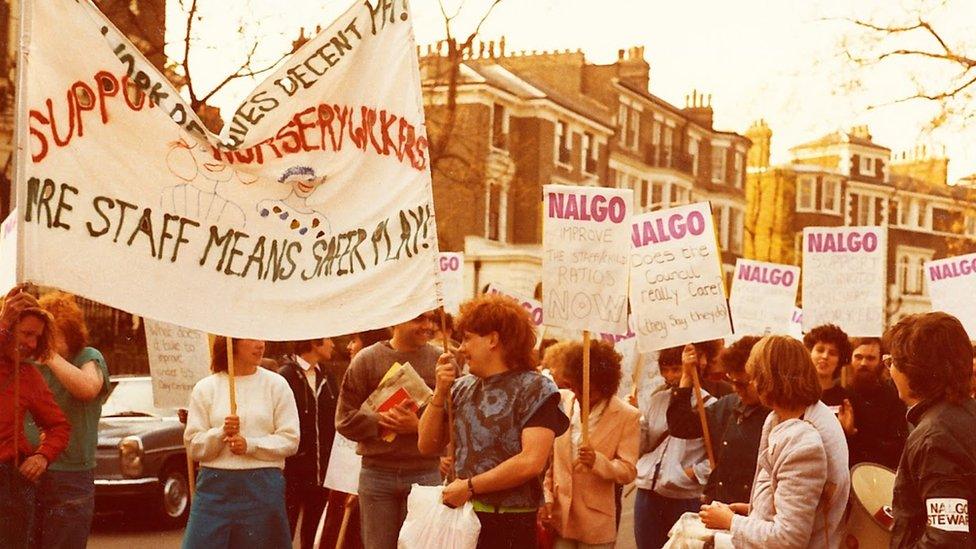
Initiatives given funding include ones focusing on local protests, homelessness in a 'cardboard city', and a Rastafari community at a squat
Heritage projects across the capital are set to receive a share of a £180,000 grant from Historic England.
Nursery workers' strikes, homelessness in a 'cardboard city', and a Rastafari community at a long-running squat are among the eight projects to benefit.
Tom Foxall from Historic England said the awardees "shine an important light on our working class heritage".
The group's Everyday Heritage programme set up in 2022 aims to showcase the diversity of England's heritage.
It is part of the organisation's commitment to "ensuring that a wider range of people are able to connect with, enjoy and benefit from the historic environment".
So far 57 projects across England have received funding, with a further 56 - including the eight in London - forming the newest list of recipients.
'When the nursery workers said no'
Non-profit cooperative organisation On the Record will receive more than £12,000 for its plans to record and share the history of the Islington nursery workers' strike 40 years ago, when roughly 160 people went on strike.
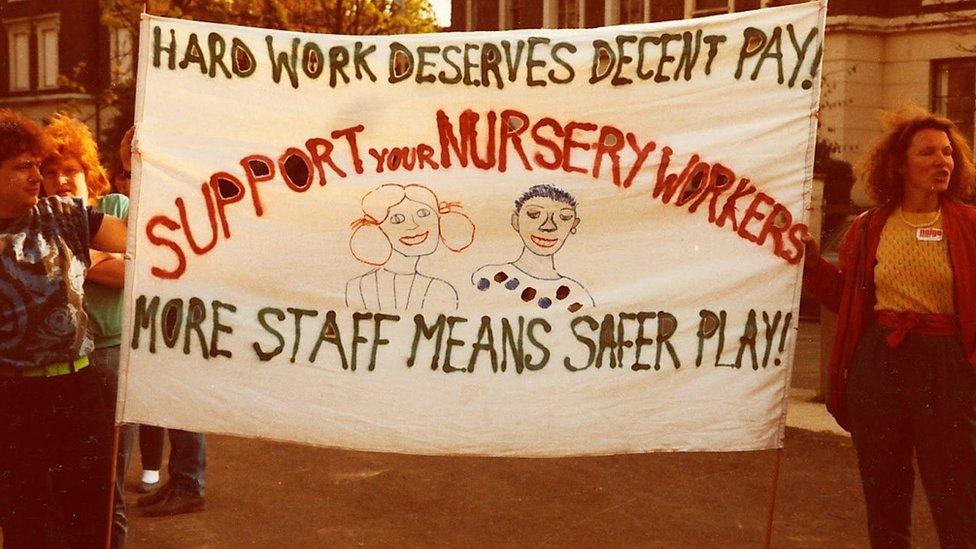
Following the strikes the workers secured improvements in the standard of care given to children
The workers were predominantly women - many from minority ethnic backgrounds - who were calling for a lower ratio of staff to children in the nurseries.
Following two strikes in 1984 and 1989 workers secured improvements in the standard of care given to children and created a better working environment for themselves.
This research may be turned into a podcast, a piece of radio theatre or an audio walking tour linking the nursery sites.
The castle on a council estate
Kingswood Arts has been awarded £25,000 to work with local people over 12 months to create a permanent exhibition exploring the working-class history of Kingswood House from 1811 to the present day.
Nearby residents will record their experiences at the Grade II listed Victorian 'castle' in the middle of a council estate near Sydenham Hill station.
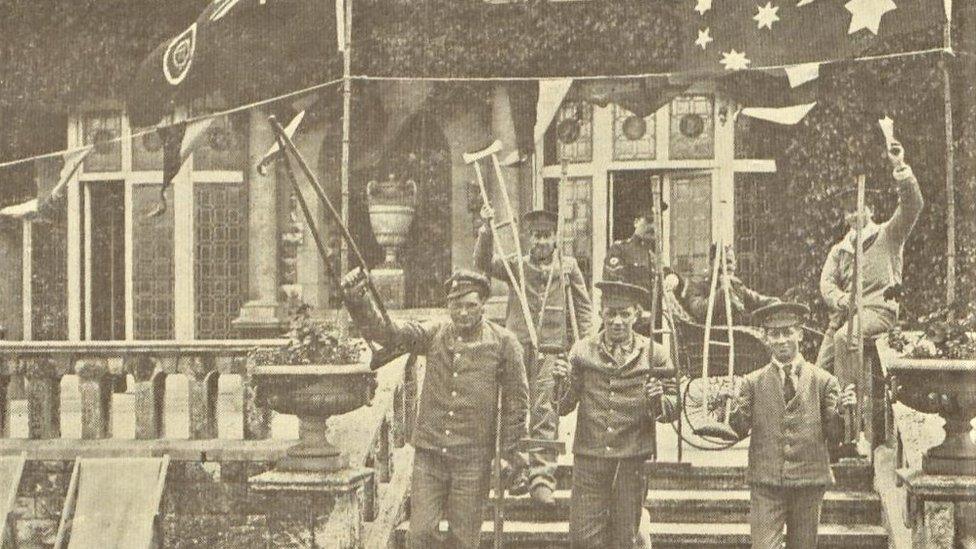
Injured Canadian Soldiers stayed at Kingswood House when it was used as The Massey-Harris Convalescent Home
The initiative aims to trace working-class life through its time as a private house to a wartime hospital, and later as a library and community centre.
Echoes from the Bridge
Eastside Community Heritage has been awarded more than £21,000 to mark the history of aspiring bands from working class backgrounds at the Bridge House Pub in Canning Town from 1975 to 1982.
The venue became a leading live music destination and hosted an eclectic mix of music from Iron Maiden to Dire Straits and Chas & Dave to Depeche Mode, as well as boosting the profile of bands like Paul Youngs' Q-Tips.
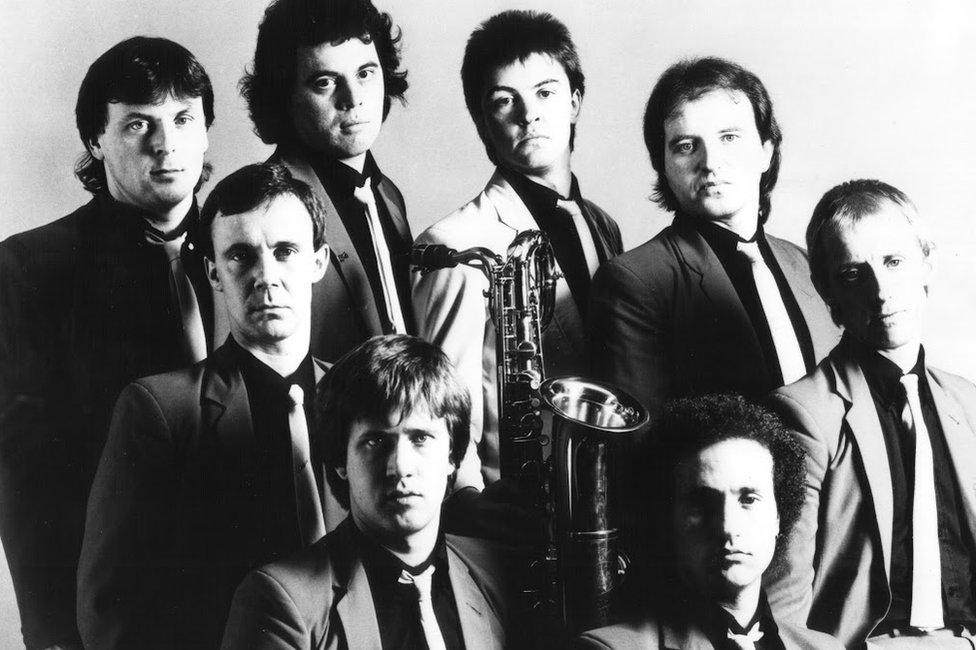
Taken early on a Monday morning after a long weekend of gigging, this Q Tips promotional shot became known as 'the hangover shot'
Bridge House also became one of the first pubs to launch its own record label.
As part of the project, oral histories and pop-up exhibitions are planned to capture the stories of people who came to socialise, listen to live music and perform.
The lost city of cardboard
Historic England has given almost £25,000 for a project led by artists and people with experience of homelessness looking at 'cardboard city', an encampment made from hundreds of cardboard boxes in the underpasses between Waterloo Station and the South Bank.
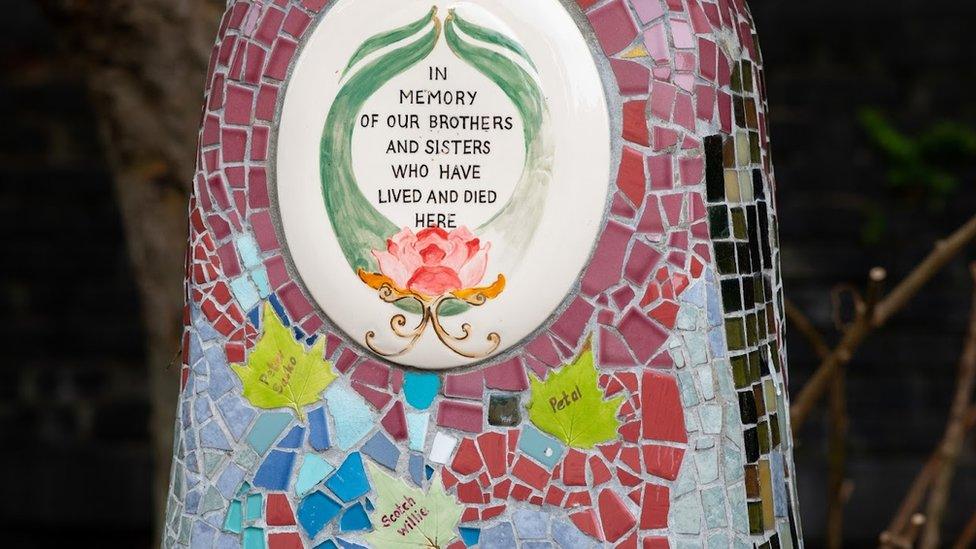
A bench dedicated to the homeless community will form a key part of the cardboard city project
The area housed thousands of rough sleepers over 20 years in the 1980s and 1990s, but St John's Church charity The Bridge At Waterloo said many of those who lived there are now in poor health or have passed away.
The groups now want to remember and memorialise what they call the "neglected heritage of homeless people in the area" by speaking with former residents of cardboard city, those who supported them, and local residents and researching objects linked to the time.
40 Years & 40 Stories from Chinatown
China Exchange has also been given nearly £25,000 in funding to explore the hidden stories of people working in Chinatown from 1985 to the present day when the area is home to more than 150 diverse businesses.
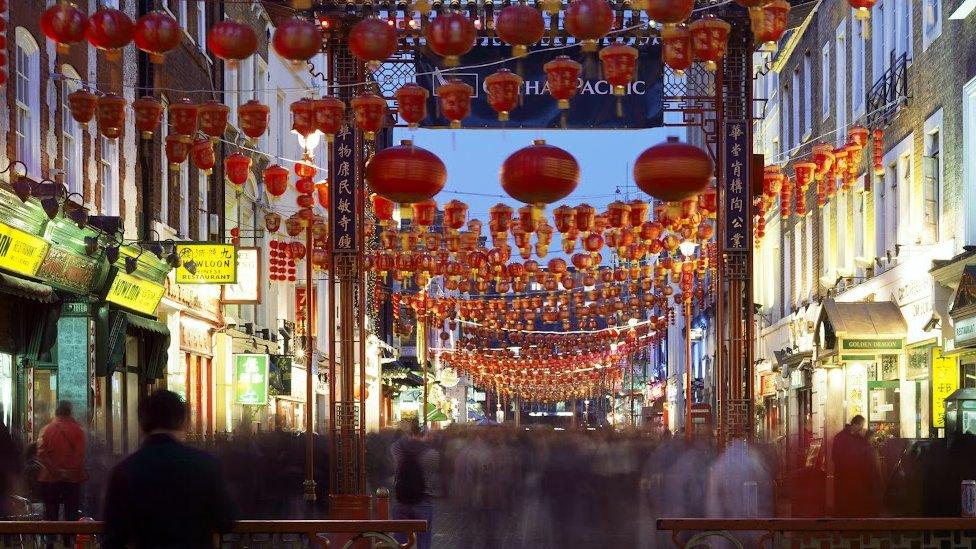
China Exchange said Chinatown is a place of work for thousands of ethnically, culturally and socially diverse Londoners
The cultural events organisation is planning to reveal and share stories of ordinary workers in Chinatown including short and long-form recorded interviews.
Histories at the House of Dread
House of Dread's project will explore and document the untold stories of the Rastafari community in what is thought to be London's longest-running squat at St Agnes Place in Kennington.
The squat existed for more than three decades and became a meeting point for the Rastafari community and by the 1980s became locally known as House of Dread.
Now historian Dr Aleema Gray and a group of community producers will work with Rastafari Movement UK to coordinate a series of community conversations and collecting days.
They have been awarded £24,980, with the goal of making a digital learning resource to examine how and why St Agnes Place evolved.
Tom Foxall, Historic England regional director, said: "There are so many hidden histories to uncover here in London. Every community has a story to tell and we want to hear them.
"This is the strength of our Everyday Heritage grant programme, which funds projects that are community-led and really engage with local people by empowering them to research and tell their own stories."

Listen to the best of BBC Radio London on Sounds and follow BBC London on Facebook, external, X, external and Instagram, external. Send your story ideas to hello.bbclondon@bbc.co.uk, external
- Published18 September 2023

- Published1 January 2024

- Published25 October 2023

- Published9 October 2023
